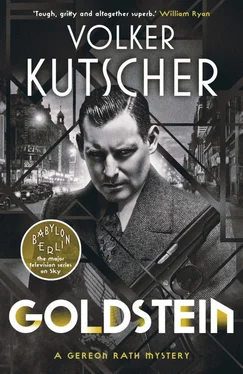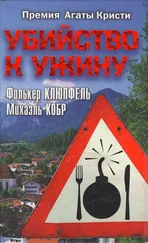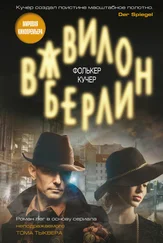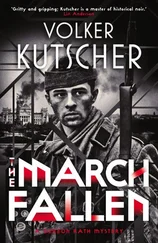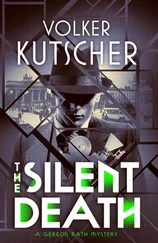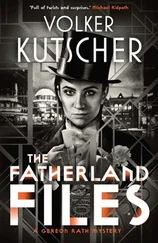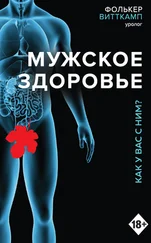Fat Moe’s rise in the last few years was due, not least, to the sure hand and discretion of Abe Goldstein. If it became inevitable that someone must die, then Handsome Abe was the man you called. Goldstein had never known any of the people on his list; most of the time he was over in Manhattan, rarely in Brooklyn, and never in Williamsburg. He never knew why they had to die, only that their death was a necessity. He took care of his work scrupulously, quickly and without emotion, using a different Remington 51 for each new contract, which he got rid of as soon as the job was complete. The police would never find a weapon on him, nor could they prove anything against him.
He walked back to the U-Bahn station, slower than on the way out, an oasis of calm in the midst of the busy throng. Reaching a wagon he came to a halt and tasted the sour cherries, spitting the stones onto the pavement before nodding contentedly and buying a bag from the trader. People hurrying by couldn’t realise, but the man crossing Grenadierstrasse was different from the one who had passed half an hour before. Only now did Abraham Goldstein feel complete, armed and ready to visit the address he had come to this city to find. Hopefully he wasn’t too late.
The money he had spent on Rath’s car had been worth it. The same went for Marion’s dress. He mustn’t forget their arrangement. Kurfürstendamm sounded like an expensive neighbourhood, but she had earned it. Without her he’d still be sitting trapped in that lousy hotel. It was only thanks to her help, thanks to her keys, that he could move about as freely as back home. No, more freely. He could do anything he wished here, absolutely anything. The police themselves would testify that Abraham Goldstein had spent the whole day inside his hotel room. The only thing he couldn’t leave was fingerprints.
Leafing through the papers on his desk, it was clear that Special Counsel Weber thought the whole thing a damned nuisance. ‘There’s nothing we can use here,’ he said finally. ‘Not a single statement from the accused, not even her personal particulars.’
‘If she doesn’t say anything, how am I supposed to take down her personal particulars?’ the officer facing him said. He had a strong Berlin accent. The girl handcuffed to him stared vacantly into space.
Had Charly imagined it, or was the poor creature shivering?
A representative from the Friedrichshain Youth Welfare Office stood like a lost soul. ‘Perhaps she’s deaf-mute, Officer.’
‘No, I can guarantee you that. She knows how to curse, this one, but she buttoned it as soon as we tried to interview her.’
Weber looked at his watch. ‘Fräulein Ritter, would you take care of the girl? I’ll return for the warrant after my appointment with Dr Keller. Getting her name and address shouldn’t be too difficult. The rest is just routine.’
While he was still speaking he reached for his coat and disappeared with a brief tip of the hat, leaving an embarrassed silence behind him.
So there she was: this taciturn girl who seemed rather shy to Charly, and who was alleged to have attacked a group of police officers on the underground. Routine. Nothing in this job was ever routine.
‘Let’s get started,’ she said, sitting on Weber’s chair, behind Weber’s desk. Judging by the look on the stenographer’s face she was already complicit in the fraudulent exercise of public office. The cop, the girl and the woman from Welfare waited expectantly. ‘Please, take a seat,’ Charly said, gesturing towards the row of chairs.
She skimmed the statement from the 81st precinct, which Weber had criticised moments before. According to it, the girl became violent after the conductor caught her riding the U-Bahn without a ticket. With the help of several passengers he overpowered her and transferred her to police custody at Petersburger Strasse U-Bahn station where, after some resistance, officers had placed her in handcuffs. They had found a knife on her person, a switchblade with traces of blood on it. At the same time they found a cut on her left hand, bandaged in makeshift fashion. These facts were enough to justify her temporary arrest, but witnesses also described a police officer with a bloodied face who had chased the girl in Strausberger Platz U-Bahn station. So far, this was unconfirmed. No wounded officer had come forward to make a statement, nor had the girl made any comment. If the statement was to be believed, apart from cursing and swearing wildly, the unidentified girl hadn’t uttered a word, at least not to the police. The whole thing was a mystery, but the fact that the assailant had punched and kicked officers repeatedly was enough for both a detention order and a charge. In Prussia, resisting law enforcement officers was no petty offence.
Charly looked up from the file. The stenographer waited with sharpened pencil. The lady from Welfare and the cop had sat down, but the girl remained standing.
‘You can take a seat too,’ Charly said.
She didn’t move, but her eyes flickered restlessly.
‘It would be good if I knew your first name. How old are you? Don’t you want to sit down?’
The girl stared out of the window at the building fronts on Magdalenenstrasse.
‘Spare yourself the effort,’ the cop said. ‘You can talk until you’re blue in the face, she won’t say a word.’
Charly ignored him. ‘The very least we need is your name,’ she repeated. ‘And where you live.’
Silence.
‘Should I be taking this down?’ the stenographer asked.
Charly shook her head.
‘If you want my opinion,’ the cop said, ‘she’s one of those brats who hangs around the old axle factory, over by the slaughterhouse. I don’t have to question her to know that.’
‘You’re well informed, Officer.’
‘I know my patch, and I recognise a runaway when I see one.’
‘But you can’t give me a name either.’
‘Scum like that, who cares about her name?’
The woman from Welfare gave a start, but said nothing. Still unsure whether she should be writing anything down, the stenographer looked indecisively from one person to the next.
‘With that sort of attitude it doesn’t surprise me that you were unable to supply the accused’s personal particulars. As an officer of the Prussian Police, you should display greater objectivity.’
‘I’d like to see how objective you are, when you’re trying to question a brat like that.’
‘Perhaps you didn’t go gently enough. The way you’re acting now…’
‘The way I’m acting now? Who is it who has to put up with these antisocial brats abusing him day in day out? Who is it they might gang up on and beat to a pulp? Who is it who’s putting his life on the line every day, you or me?’
Charly’s tone became sharper. ‘Remove her handcuffs, Officer.’
‘Pardon me?’
‘You are to remove the girl’s handcuffs before I begin the interrogation. We’re not dealing with a hardened criminal here.’
The officer shrugged and rummaged around for the key. ‘You’re the boss.’
It didn’t sound much like he meant it, but he unfastened the handcuffs without complaint. Nothing happened.
‘You see,’ Charly said.
‘You weren’t there this afternoon.’
The officer clipped the handcuffs back onto his belt.
‘I’d like to question the girl in your absence,’ Charly said.
‘Pardon me?’
‘I think she’s afraid of you. You, or your uniform. If you would be so kind…’
The officer shrugged again and stood up. ‘If you think so. You’re the boss.’
Charly looked at the stenographer, who had made no move to get up. ‘I think it’s better if this stays off the record for now,’ she said.
Читать дальше
